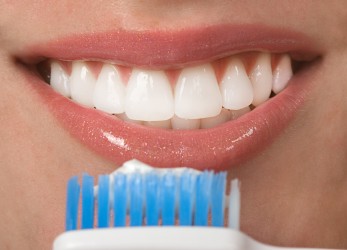 Dental crowns are a very durable type of restoration. With proper care, they will last a long time, although a metal crown is generally more durable than a porcelain or porcelain bonded crown. Most crowns don’t require special care, but you can ensure they’ll last longer by taking certain precautions.
Dental crowns are a very durable type of restoration. With proper care, they will last a long time, although a metal crown is generally more durable than a porcelain or porcelain bonded crown. Most crowns don’t require special care, but you can ensure they’ll last longer by taking certain precautions.
Types of Crowns
There are three basic types of crown. You and your dentist can decide together which type is the most appropriate for your treatment. The choice will be based on what tooth is being treated and other factors such as how much biting or chewing pressure the tooth must withstand.
The basic types of crown are:
- Metal
- Porcelain
- Porcelain bonded
Metal crowns and crowns bonded with porcelain are often used to treat molars. They are more likely to stand up to the strong pressures produced by chewing. Porcelain is almost always used for front teeth because it has a natural look to them and will not detract from the appearance of your smile. Porcelain can also be used for back teeth if the patient prefers. A consultation with your dentist will help you decide on the best type of restoration.
Caring for Your Crowns
As a general rule, everyday oral hygiene and regular dental care are all your new crown will need. Be sure to always brush and floss around the restored tooth. Even though the tooth itself is covered, it’s still important to remove food particles or beverage residue from the tooth surfaces. Brushing also helps massage the gums and remove plaque or food from around the gumline. Flossing removes cavity-causing residue from between the crowned tooth and untreated adjacent teeth to prevent gingivitis from developing.
If you have porcelain crowns, avoid biting down on hard objects such as ice cubes, pencils, pens, or metal items. This will help prevent chipping or breaking. Also avoid foods or beverages that could stain your teeth. If porcelain becomes stained, it cannot be treated with a whitening treatment like your natural enamel can.
For more tips on taking care of you dental crowns, contact the office of Drs. Kemp and Borovac today.

